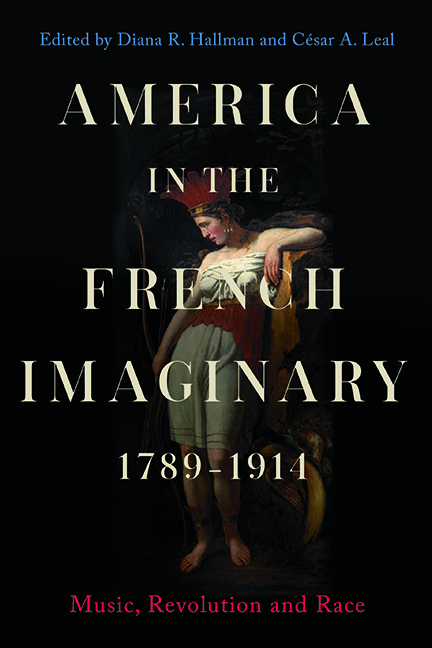Book contents
- Frontmatter
- Dedication
- Contents
- List of Illustrations
- List of Music Examples
- List of Abbreviations
- Editorial Notes
- List of Contributors
- Acknowledgements
- Preface
- Introduction
- Part I American liberté, sauvagerie and esclavage
- Part II Myths of America and Intersecting Identities
- Part III Soundscapes and Sonic Fantasies
- Part IV America, Commodification and Race at the fin de siècle
- Bibliography
- Index
- Music in Society and Culture
10 - Cakewalking in Paris: New Representations and Contexts of African American Culture
Published online by Cambridge University Press: 15 September 2022
- Frontmatter
- Dedication
- Contents
- List of Illustrations
- List of Music Examples
- List of Abbreviations
- Editorial Notes
- List of Contributors
- Acknowledgements
- Preface
- Introduction
- Part I American liberté, sauvagerie and esclavage
- Part II Myths of America and Intersecting Identities
- Part III Soundscapes and Sonic Fantasies
- Part IV America, Commodification and Race at the fin de siècle
- Bibliography
- Index
- Music in Society and Culture
Summary
Most narratives of the cakewalk assert that, during its early life in antebellum America, this genre perhaps represented one of the very few safe ways in which Black slaves could respond to the cultural and social practices of their oppressors. Enslaved Americans observed social dances and developed the cakewalk as a parody of their masters’ dance movements. In such a parody, full of exaggerated gestures, the ultimate goal was to win the ‘cake’, an award given to the couple with the best moves. As slave-owners became aware of the origin of the slaves’ burlesque, they deemed such renditions of their dances non-threatening but, instead, entertaining. Since the cakewalk was not a challenge to their authority or a stern criticism of their own cultural and social values, slave-owners observed the slaves’ imitation as an aspirational activity – an attempt to emulate their sophisticated rituals. Seeing the cakewalk as a homage rather than a subversive practice, slave-owners developed a taste for the dance and incorporated its steps as created by enslaved Americans into their own repertoire of dances. Jayna Brown emphasises this racial and class inversion, pointing out the ‘satirical meanings hidden in full view of the masters’ and the ‘delightful twisting irony’ of the masters’ ‘mimesis’. After the Civil War, American minstrelsy not only would put African Americans and non-Black performers on the same stage, but would bring genres like the cakewalk to nearly every corner of the United States. The popularity of minstrel shows among audiences in northern urban centres such as New York during the early nineteenth century attracted the attention of impresarios and agents, who organised international tours and brought minstrel shows to European cultural capitals like London and Paris. By the early 1900s, African American music had become a strong cultural agent in such centres. However, the ways in which American-based racialised interactions, as well as transatlantic transformations of African American music, affected the European reception of genres like the cakewalk from the early nineteenth to the early twentieth century are still under consideration, and comprehensive narratives of this complex subject are still under construction.
- Type
- Chapter
- Information
- America in the French Imaginary, 1789-1914Music, Revolution and Race, pp. 296 - 328Publisher: Boydell & BrewerPrint publication year: 2022



